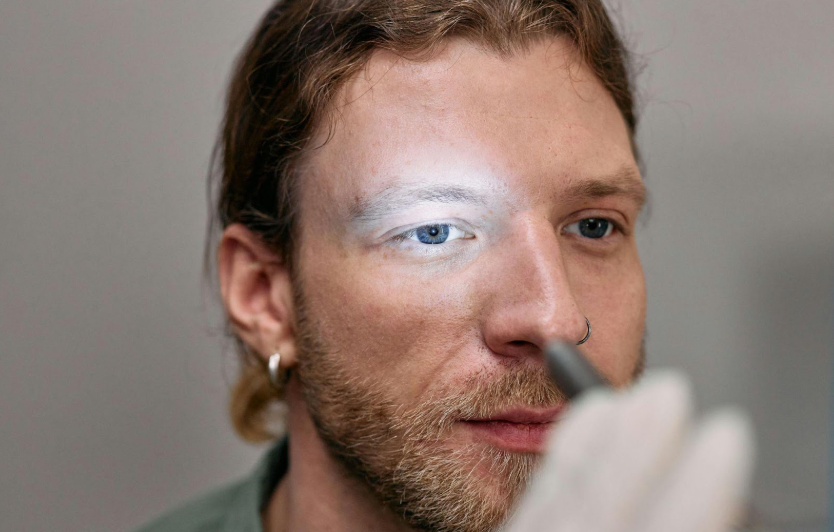Why You Can Have Glaucoma & Not Realize It Until Serious Vision Loss Occurs
 There’s a good reason eye doctors often refer to glaucoma as “the silent theif of sight.” Because damage to vision is painless and progresses gradually, many patients only realize they were actually experiencing symptoms in hindsight.
There’s a good reason eye doctors often refer to glaucoma as “the silent theif of sight.” Because damage to vision is painless and progresses gradually, many patients only realize they were actually experiencing symptoms in hindsight.
For example, Dr. Holt says, “I once had a patient who didn’t realize he had glaucoma. However, he had noticed that after he hit a golf ball he couldn’t see it in the sky. He also mentioned that, while on his job as a plumber, he kept hitting his head on pipes that he just didn’t see were in his way.”
You can probably understand why such examples of vision impairment wouldn’t necessarily set off alarm bells to make someone suspect they had glaucoma. But the nature of this eye disease is that vision typically erodes from the periphery, meaning that the side or outer edges of your vision diminishes before your central, or front, vision does.
This gradual peripheral vision loss is indicative of the most common form of glaucoma, called primary open-angle glaucoma, which develops slowly over time as pressure within the eye stretches the optic nerve.
Primary open-angle glaucoma can develop for quite some time without causing any noticeable symptoms until loss of peripheral vision becomes apparent to the patient or, more ideally, is detected at earlier stages by an ophthalmologist.
A less common type of glaucoma, called acute angle-closure glaucoma , typically occurs quickly due to a rapid increase of pressure in the eye. However, this less common form of glaucoma usually does include symptoms, such as severe eye pain, nausea, blurred vision, redness in the eye, and seeing halos or colored rings around lights.
Acute angle-closure glaucoma is an urgent condition in which severe vision loss can occur quickly, so immediate medical attention is required.
Preserving Vision To Prevent Blindness
Regardless of the type of glaucoma, once vision loss occurs from the disease it’s typically permanent. If left untreated, glaucoma can lead to significant vision loss in both eyes, including blindness. In fact, glaucoma is the second-leading cause of blindness in the U.S.
In addition, there is also currently no cure for glaucoma. That said, medication and/or surgery can stop or slow the progression of vision loss from glaucoma as long as the condition is diagnosed in time. The key to early diagnosis is regular comprehensive eye exams, especially for those with a high risk of developing the condition.
While anyone can develop glaucoma, especially over the age of 40, those who are at an increased risk for the disease include people who:
- Have a family history of glaucoma
- Are African Americans over the age of 40
- Are Hispanics/Latinos over the age of 60
- Are diabetic
- Have thinner corneas
- Have chronic eye inflammation
- Are taking medications that increase pressure in the eyes
Waiting for symptoms to appear or monitoring eye pressure is not sufficient for preventing vision loss from glaucoma. Only a comprehensive exam—including dilation—is effective in evaluating the optic nerve for signs of damage from early stage glaucoma.
It’s recommended that anyone over the age of 35, particularly those with a family history of glaucoma, keep up with annual comprehensive eye examinations. If glaucoma is detected, medications or surgery can help keep eye pressure under control and slow or stop damage to the optic nerve.
New medications to help fight glaucoma are always being researched and developed. But the disease must first be diagnosed, ideally in its earlier stages, for any treatment to be effective in preventing vision loss or blindness.
At Baptist Eye Surgeons , our ophthalmologists have the experience and expertise in the detection and treatment, and ongoing monitoring can help to control glaucoma and reduce vision loss. [To learn more about glaucoma, download our free eBook, The Complete Guide To Glaucoma.]
Baptist Eye Surgeons is an ophthalmological practice in Knoxville, TN, and Morristown, TN, dedicated to providing quality eye care to patients whose needs range from routine comprehensive eye examinations to serious eye injuries, to complex surgeries. To meet our doctors and learn more about our specialities, visit our website , give us a call at 865-579-3920 for more information, or schedule an appointment online.





